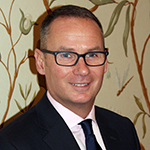 The NHS five year forward view talks about harnessing the “renewable energy represented by patients and communities” and the need to “engage with communities and citizens in new ways, involving them directly in decisions about the future of health and care services.” We know that one of the founding principles that underpins the NHS at its best is that it’s “of the people, by the people and for the people.”
The NHS five year forward view talks about harnessing the “renewable energy represented by patients and communities” and the need to “engage with communities and citizens in new ways, involving them directly in decisions about the future of health and care services.” We know that one of the founding principles that underpins the NHS at its best is that it’s “of the people, by the people and for the people.”
Now more than ever this is becoming true not because the Five year forward view says it but because it’s demanded by patients, communities and the population the NHS serves. Simon Stevens recognised this changing relationship when he talked about the NHS as a social movement. This can’t be controlled or mandated – it’s happening and it should be embraced and celebrated as a force for good and renewal.
In a binary world the access to information and knowledge by patients eager to share in the decision making process regarding their care is restricted to doctors and the medical profession. This colludes with the ability for the powerful experts to remain powerful. However in a digital world information and knowledge is freely accessible to everyone which challenges the traditional notion of leadership and power. Everyone becomes a leader and everyone becomes powerful. This is a fundamental challenge to the old paradigm and enables patients to truly embrace the opportunity to become partners and share in the decision making that affects their care.
However this is easier said than done. But the choice is not whether but when the leaders of health ride this wave. Failing to do so will see them swamped.
With the aim of supporting new and positive innovations in this space, The King’s Fund have been nurturing this changing patient relationship for the last 12 months by supporting a number of projects where patients have worked in ‘collaborative pairs’ with doctors and other health professionals. This has given us insight into the power when patients and healthcare professionals collaborate in determining individual care pathways. Yesterday we published a new guide to building collaborative relationships with patients based on the lessons from this work.
Some of the collaborative pairs work mentioned in a King’s Fund guide out today, includes examples of doctors who have built these kind of relationships with patients and their communities. These include: a consultant cardiologist and his patient who looked at the re-design of local heart failure pathways and services. Also, a lay member for patient and public participation and a head of engagement in a CCG who looked at how best to mobilise community assets while working with GP practices in newly formed clusters with a focus on promoting preventative healthcare.
Developing this way of working on a wider scale requires support and a change of attitude from everyone involved. The power to determine care pathways has to be a shared decision. This requires a fundamental shift in power dynamics which will require support to unlearn generations of behaviour.
One way for doctors to provide this support is to see patients as partners recognising that the pathways for development of patient and community based leaders is historically under resourced and undervalued in comparison to the investment in leadership for clinicians and managers. The Kings Fund are therefore keen to work specifically with patient leaders to support their practice as leadership partners.
Central to this is a move away from a “them and us” way of relating to a much more collaborative form of working and that this will need a shift from all of us in the way that we think about our leadership roles and the validity of the different perspectives and expertise that we each hold. Collaboration is not about compromise – it brings the best from everyone to find new and potentially exciting innovations.
The Kings Fund are therefore offering the Collaborative Pairs programme and National Network to specifically name this new relational dynamic and to support both patient and health care leaders to move into a different role where leadership is shared.
Working in partnership with patients is still a journey for the King’s Fund and one which we continue to learn from. We also know that there are many other people and organisations, including many doctors, who are doing great work and have championed this agenda over the years. By making a new commitment to working in this way, we hope to encourage others to do the same. This is why we are calling on every NHS organisation to commit to working with patients as partners and ensure that their perspectives are embedded at the heart of everything the NHS does.
Marcus Powell is the director of leadership and organisational development at the King’s Fund.
Competing interests: None declared.
